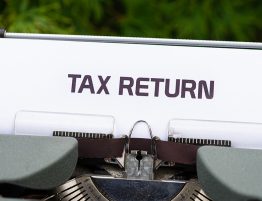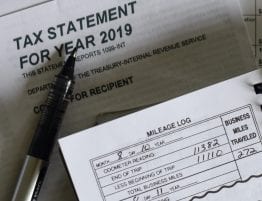
The IRS has been coping with the aftermath of budget cuts and government shutdowns, which has greatly reduced its ability to conduct audits, respond to taxpayer queries, and curtail fraudulent returns scams.
This could potentially change in the coming years.
The U.S. government could raise more than $1 trillion in additional taxes over the next decade through stricter enforcement of tax laws, new research revealed.
The report said that between 2020 and 2029, the IRS will fail to collect nearly $7.5 trillion of taxes it is due. With stricter enforcement, even if the IRS collects a fraction of what is due, it could reduce its financial burdens substantially.
Enforcement can be done by “performing more audits (especially of high-income earners), increasing information reporting requirements, and investing in information technology,” the report stated. Markets Insider elaborates:
“The IRS could reduce the amount of owed-but-uncollected taxes by roughly 15% in that period through increased audits, reporting requirements, and information technology, Harvard’s Lawrence H. Summers and Wharton’s Natasha Sarin estimated in a National Bureau of Economic Research working paper released this month.
‘Almost everyone involved in public-policy debates agrees that it would be good if the federal government could collect more revenue without raising tax rates or reducing tax deductions or credits,’ the economists wrote in the study a summary published in the Washington Post. ‘It should be indisputable that investment to make sure all citizens meet their tax obligations is desirable.’
While Summers and Sarin said isn’t possible to calculate with precision how much of that tax gap could be collected, the paper ‘offers a naïve approach.’ There will be more than $7.5 trillion uncollected taxes by 2029 under the current system, they estimated, and roughly 70% of that would be driven by underpayment by the top 1% of earners.
The IRS would need roughly $100 billion more to spend on additional enforcement to hit that target of tax revenue, the economists said. Government estimates have found that every $1 put toward the agency generates between $5 and $13 in greater tax collection.
The new tax-gap reduction estimates were far below those of the Congressional Budget Office, which modeled a smaller budget increase. In 2018, the nonpartisan office forecast that a $500 million increase in the 2019 IRS budget would reduce the federal deficit by $35 billion by 2028. But it similarly noted a high degree of uncertainty at play.
‘Taxpayers would gradually become aware of some of the changes in the IRS’s enforcement techniques associated with the initiatives,’ the office said. ‘In response, they would shift to other, less detectible forms of tax evasion.’”
Fill out the form for a free and confidential consultation.








